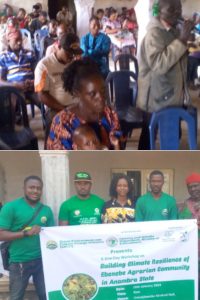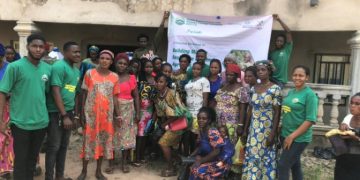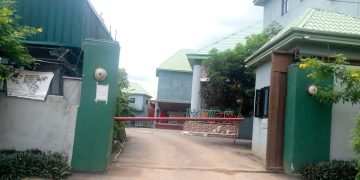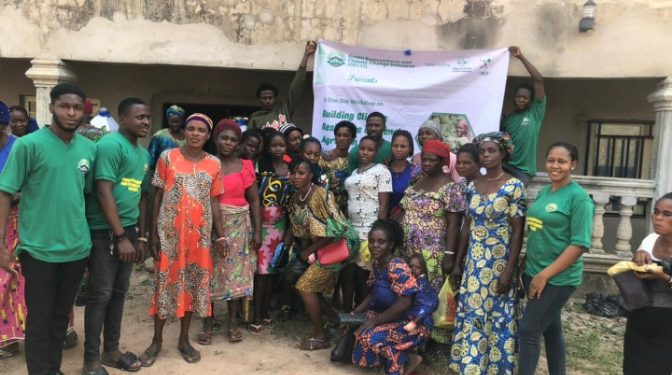Environmentalists Urge Anambra Farmers To Plant Trees To Mitigate Climate Impacts

Environmental experts have recommended intentional tree planting as one of the major ways to mitigate climate change in Nigeria.
The experts made the call during the campaign for Building Climate Resilience in agrarian communities organised by Green Environment and Climate Change Initiative, (GECCI in Ebenebe, Awka North Local Government Area of Anambra state on Wednesday.
GECCI, a non Government Organisation organised the programme in partnership with the Forestry and Wildlife Department, Anambra State Ministry of Environment with supported by the Nigeria Climate Justice Alliance, ( NCJA), and the Nigeria Conservation Foundation , (NCF).
Dr Oluropo Apalowo, the Program Officer of the Green Environment and Climate Change Initiative, GECCI embarked on the campaign with the aim of ensuring that the effects of climate change did not consume local farmers who have been responsible for food security in Nigeria.
Doctor Apalowo said Ebenebe was still among the communities that have forest reserves in Anambra, and that the campaign was part of the efforts towards conserving them.
He said the idea was to teach farmers new innovations that would help mitigate the negative impacts of climate change on their agricultural produce.
Dr Onyinye Achugamuonye, the Director, Forestry and Wildlife Department , Anambra state Ministry of Environment called on the people to imbibe climate resilience which is the ability to anticipate, prepare, respond and recover from the adverse effect of climate change.
She said that the effects of climate change on agrarian community were diverse and multifaceted which included, shift in farming seasons, water scarcity, increased temperatures, Extreme weather events, Pest and diseases.
“Others are Crop yield variability, livelihood challenges, loss of biodiversity, adaptation costs as well as social and cultural impacts,” she said.
According to the environmental expert, the climate resilience challenges could be approached through building adaptive capacity, implementing sustainable practices, fostering community engagement
Another expert and forest officer in charge of Awka Zone, Mr Innocent Eze said that tree planting was key to checkmating climate issues as it controls erosion and provides shelter as well as resilience to other dangers.
Eze who admitted that there were still few existing forest reserves in the state regretted that successive governments have not given proper attention to developing more reserves but rather they continued to sell the available ones.
“We are trying our best to conserve the forest but politicians are not making it easy for us because most of the land has been sold to developers.
“For example, Mamu forest reserve is still being sold, trees are being felled in spite of the series of letters we have written to the government to stop activities.
On his part, Doctor John Ogbodo, a lecturer at Nnamdi Azikiwe University, Awka and Director Bamboo institute that the impact of climate change have been enormous including poor yield of agricultural productivity, flooding and outbreaks both to the human and crops hence the imperative need for concerted effort to mitigate it.
Doctor Ogbodo urged the people to form environment based committees to enable them carry out some activities such as tree planting, practicing of agroforestry, cultivation of crops in climate-smart ways using minimal soil and production of compost manure in their houses before taking them to the farm.
A farmer , Mrs Edit Obiora appreciated the organisation for taking time to educate them on ways of mitigating the impact of climate change while urging the government to provide soft loans to enable them apply the knowledge garnered from experts.
She observed that there had been obvious changes on crop yields in farming seasons which indicated that the feared impact was already affecting agriculture productivity.
Two Community leaders in Ebenebe, Mr Christian Obiora and Chief Cletus Ajuorah could not agree less that cutting of trees was one of the practices that needed to be discouraged if the farmers must avert the subject of discussion and enjoy a healthier environment.







































